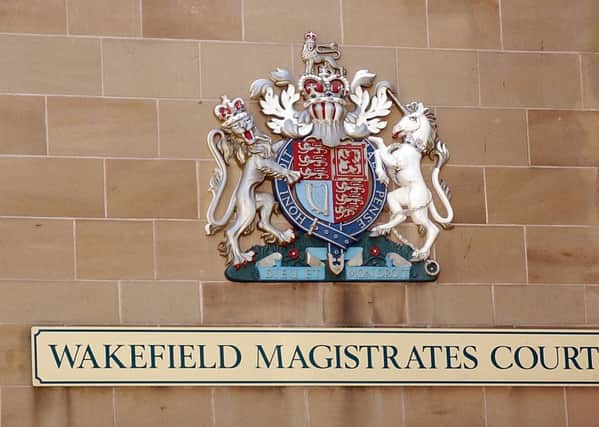Mary Creagh: Court closures threaten access to justice


WAKEFIELD Magistrates’ Court is one of 86 affected by this latest round of closures.
That figure represents nearly one fifth of the total court estate and a cut of 20 per cent to our access to local justice.
Advertisement
Hide AdAdvertisement
Hide AdWakefield’s court is a vital community resource that provides access to justice for people and its closure will undermine that access.
In September last year I launched a public petition opposing the closure of Wakefield court, and it has been signed by hundreds of people.
The court closure is the latest threat to Wakefield city centre, because it comes alongside the announcement by the Post Office that Wakefield post office should be run as a franchise.
There is cross-party concern about these closures. It is important that justice is not only done and seen to be done but that it is seen to be done locally.
Advertisement
Hide AdAdvertisement
Hide AdThe closures will also result in more failed cases, as victims and witnesses will have to travel long distances to get to court. That will also waste police time, because officers will have to travel further to those courts.
This is just passing on cuts. In this case, the cuts will be outsourced to the police service, because it is the police who will have to spend time travelling from Wakefield to Leeds accompanying defendants or to give evidence.
In the case of the family courts, it will be council officers’ time that will be spent in that way. This is not a cost-neutral solution. If we are looking at whole-government accounting, it would be useful to carry out a whole-cost inquiry into this matter to determine the whole-cost implications. It is unacceptable to make a cut in one place that has to be absorbed by other parts of the system.
Local justice will not be seen to be done if Wakefield court closes, because the local Press will not turn up to report cases being heard in courts many miles away.
Advertisement
Hide AdAdvertisement
Hide AdA local solicitor has told me that the consequences of the closure could be catastrophic for some of Wakefield’s law firms. Solicitors will go where the work is, and firms that do not have offices in Leeds have talked about the possibility of moving out of Wakefield. That would be yet another big on-cost to our city centre. Those firms cannot afford to be in a city where there is no court, because they cannot afford to pay regular expenses for their lawyers to travel to Leeds.
Wakefield Magistrates’ Court has been performing to a high standard. The Government said in their own consultation document that the building was “well used” and, according to the Law Society, Wakefield is a “busy court” operating at a higher capacity than the England and Wales average.
For the year to date, our conviction rate for cases in Wakefield district and magistrates court is 87 per cent, compared with the national target of 85 per cent.
A couple of weeks ago I met Mabs Hussain, the new district commander of Wakefield police. He is rightly proud of the work that Wakefield police are doing to achieve a very high conviction rate for domestic violence. That has certainly changed for the better since I was elected as the MP for Wakefield 10 years ago.
Advertisement
Hide AdAdvertisement
Hide AdI can remember asking for a specialist domestic violence court for Wakefield and being told by a court official, almost with a pat on my hand, that I did not really understand domestic violence and that the trouble with such allegations was that he would find the parties involved sitting holding hands outside the court.
I left him in no doubt about my understanding and suggested that he perhaps needed to understand a little more about domestic violence and abuse cases.
We have worked hard on this, and the council has worked hard on its Safe at Home project for victims of domestic violence.
We have a conviction rate of 81 per cent compared with a national target of 75 per cent, along with a very low attrition rate. Commander Hussain is rightly concerned about what the court closure would mean in this regard. Wakefield also has a very low average for the number of days from first hearing to trial: 65 days compared with 103 days nationally.
Advertisement
Hide AdAdvertisement
Hide AdThis is the second round of court closures in Wakefield since 2010. We had the closure of Pontefract Magistrates’ Court in 2013, and the work of that court and its staff have now transferred to Wakefield. The latest closure will mean that all parties – victims, defendants, witnesses and solicitors – will need to travel into Leeds, which will significantly increase their travel times.
The Minister has said that 95 per cent of citizens will still be able to reach their court by car, but the courts deal with the poorest and most vulnerable people in our society.
Justice is supposed to convict the guilty and protect the innocent, and there is a grave risk that these proposals will do the reverse.
Mary Creagh is MP for Wakefield. She spoke in a Commons debate on court closures. This is an edited version.